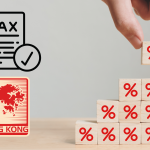Service Permanent Establishment in Hong Kong and Mainland China
A service permanent establishment (‘PE’) is usually defined within double tax agreements (‘DTAs’). For example, the PE in the DTA between Mainland China and Hong Kong as well as the Netherlands encompasses the furnishing of services, including consultancy services, by an enterprise of a contracting state directly or through employees or other personnel engaged by the enterprise in the other contracting state.
This is the case only if activities of that nature continue (for the same or a connected project) in the other contracting state for a period or periods aggregating more than 183 days within any 12-month period.
General Definition of a Service Permanent Establishment
It is not uncommon for a company (‘Company A’) to assign some of its employees and/or independent service providers to another tax jurisdiction (‘Jurisdiction B’) to provide services for another (affiliated or non-affiliated) company (‘Company B’) based in that Jurisdiction B.
In such scenario, and assuming that Company A is not managed and controlled from out of Jurisdiction B, Company A may have created a service permanent establishment in Jurisdiction B, which PE is exposed to corporate income tax in Jurisdiction B accordingly. Such potential exposure has been picked up by the relevant tax authorities as many tax audits seem to nowadays focus on whether or not a PE is present and related corporate income tax is underpaid.
Furthermore, such PE presence often results into additional individual income tax and this might be also one of the reasons why PE issues have attracted much attention from the tax authorities in recent years due to the significant and various tax revenues involved.
Hong Kong General PE tax rules
Generally, the operations through a Hong Kong PE with a head office outside Hong Kong are taxed in the same way as the operations of a Hong Kong subsidiary with a parent company outside of Hong Kong. Therefore, the tax liability of a (computer) server when considered as a PE, must be determined by reference to the ordinary Hong Kong profits tax rules which can be found in the Hong Kong Inland Revenue Ordinance (‘HK IRO’).
The general HK IRO provisions for charging a Hong Kong company or Hong Kong PE with Hong Kong 16.5% profits tax determine that a liability to profits tax only exists when:
- Such company or PE carries on a trade, profession or business in Hong Kong;
- The company or PE derives profits from that trade, profession or business; and
- Those profits arise in or are derived from Hong Kong (‘HK source rule’).
It should be noted here that the final Hong Kong profits tax calculation will depend on whether there are accounts available or not.
Hong Kong Specific Permanent Establishment tax rules
The HK IRO does not contain a general PE definition (apart from a definition for specific industries), however the Hong Kong Inland Revenue Rules provides that a permanent establishment “means a branch, management or other place of business”.
This Hong Kong PE definition is therefore slightly different from the PE definition that can be found in the Model Tax Convention of the Organisation for Economic Co-Operation and Development ‘OECD’). This difference is also noted by the HK IRD in its Departmental Interpretation and Practice Notes (‘DIPN’). Within these DIPN, the HK IRD explicitly states that the Hong Kong PE definition implies:
- The presence of a physical place and personnel
- That therefore it is generally accepted that the mere presence of a (computer) server (even if an intelligent one – i.e. capable of concluding contracts, processing payments or delivering digital goods) does not constitute a PE in Hong Kong as long as there is no involvement of human activities in Hong Kong.
The Hong Kong PE approach is therefore different than the one used by the OECD.
Service PE Issues in Relation to a Mainland China
Although a service PE is usually defined within DTAs, a lot of uncertainties may still exist when determining the presence of a service PE. For example, an employee of a Dutch company (‘NL-Co’) is assigned to Mainland China to provide consultancy services for an affiliated entity in Mainland China (‘CN-Co’). In case the individual works under the instruction and control of CN-Co as well as reports his duties directly to CN-Co, will NL-Co be regarded as maintaining a service PE in Mainland China?
To answer this question, one may need to further look at a number of relevant factors, such as whether the salary of the individual is paid and borne by CN-Co or NL-Co, whether a profit is earned by NL-Co from CN-Co for assigning the individual, and whether the risks and responsibilities of the work of the individual are assumed by NL-Co or CN-Co.
Another difficulty is whether the activities of a company that provides various services, such as marketing, business operation consulting, technical engineering and financial advisory services, to its affiliated entity in another tax jurisdiction can be considered as a connected project, if not, this would minimise the risk of having a service PE present in that tax jurisdiction.
Further, the time threshold for assessing whether a service PE is present is usually ‘183 days’, however in some DTAs such as the one between Mainland China and Germany or Mainland China and Italy the threshold is defined as a period of ‘6 months’. There is however currently still no clear guidance on how to define/determine the ‘6 months’ period under DTAs or within the framework of the Commentaries of the Organisation for Economic Co-operation and Development and/or the United Nations. As a result, there may be controversy between tax authorities and taxpayers when deciding on the presence of a PE.
Taking an example, a service project in Mainland China, provided by Company A to Company B, begins on 1 March 2015 and ends on 31 August 2015. During this project, none of the individuals provided by Company A to Company B stayed in Mainland China in the months April and May 2015, however they all arrived in Mainland China on 28 February 2015.
The questions that subsequently rise are whether the 6 months period should start on 28 February 2015 and whether the 2 months absence from Mainland China in April and May 2015 has still to be taken into account towards the 6 months period. If so, then the number of months will be 7 (i.e. from February to August 2015) resulting into the presence of a PE.
Service Permanent Establishment Implications on Individual Income Tax
Please be aware that in case a service PE is maintained by a foreign entity in Mainland China, the relevant individuals assigned to Mainland China will potentially be exposed to Mainland China individual income tax, irrespective of whether or not the individuals stayed in Mainland China for more than 183 days in a year.
In view of the above, one may have to consider to conduct a tax health check on its PE exposures and obtain proper advice on how to mitigate the potential PE risks.






